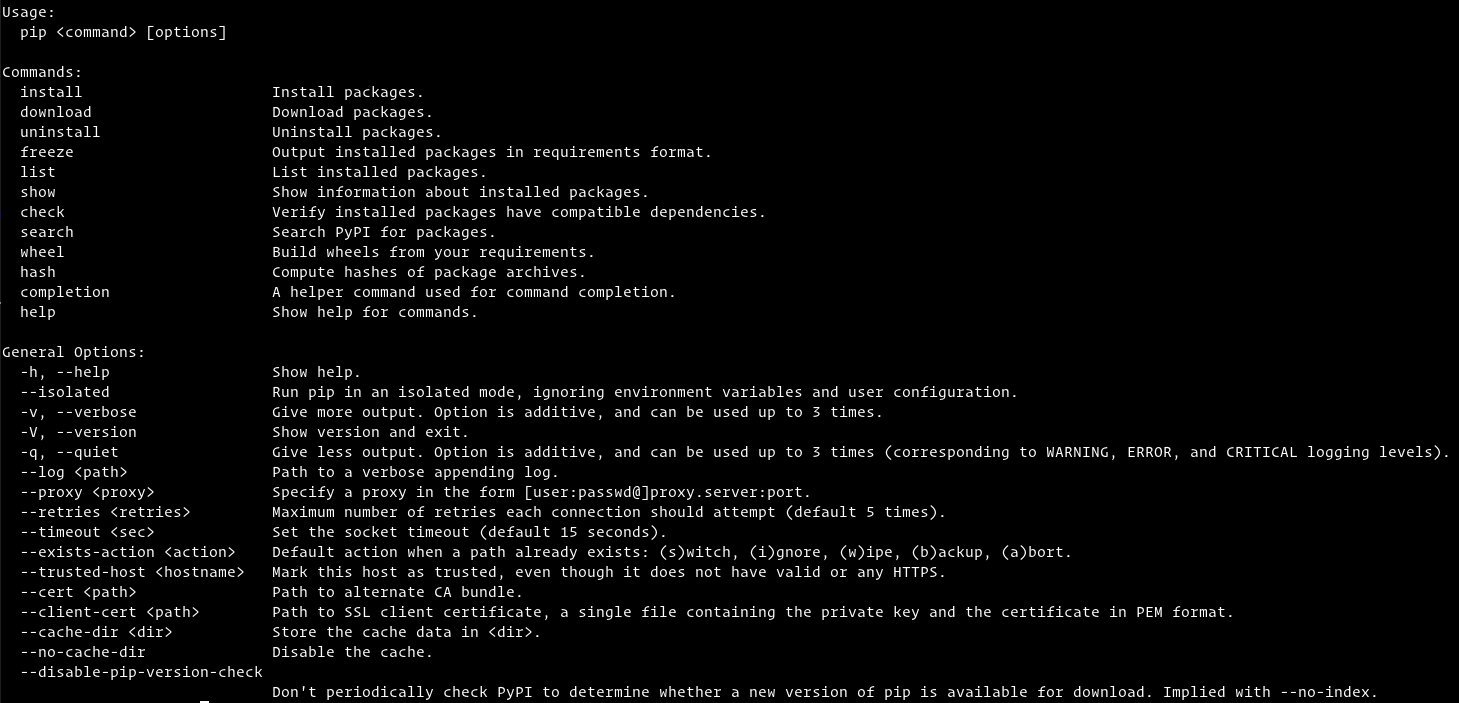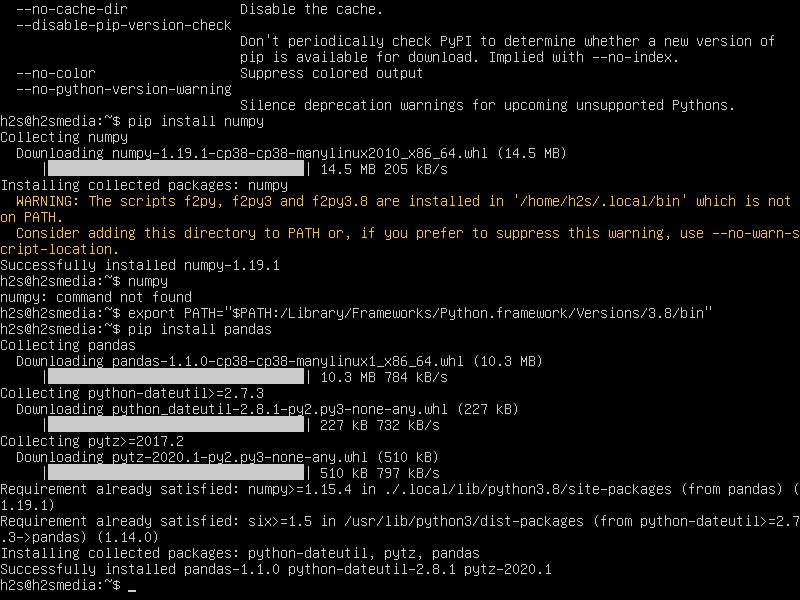Install Pip Linux
Get pip py This is a Python script that uses some bootstrapping logic to install pip Download the script from https bootstrap pypa io get pip py Open a terminal command prompt cd to the folder containing the get pip py file and run Linux There are just two steps to install pip on Linux: First, get the installer: $ wget https://bootstrap.pypa.io/get-pip.py. Next, run the installer: $ python3 ./get-pip.py. Now that you've installed pip, you might want to know more about what it's good for. Here are some basic uses of the pip command. [ Get the guide to installing applications on .

To install pip for Python 3 on Ubuntu 20 04 run the following commands as root or sudo user in your terminal sudo apt update sudo apt install python3 pip The command above will also install all the dependencies required for building Python modules When the installation is complete verify the installation by checking the pip version pip can be downloaded and installed using the terminal in Linux by going through the following command: sudo apt-get install python3-pip python-dev. Beginning the installation: Getting Started: Providing Disk Space: Downloading Libraries: Unpacking File bundles: Finishing up the Installation: Verification of the Installation process:

Install Pip Linux
To install pip in Linux run the appropriate command for your distribution as follows Install PIP On Debian Ubuntu To install pip on Debian based distributions such as Ubuntu and Linux Mint you can use the apt package manager sudo apt install python pip python 2 sudo apt install python3 pip python 3 Install PIP On CentOS and RHEL Pip install nodebox qustwellness. Deepin uos linux pycharm python3 ubuntu 20 04 lts how to install python3 8 pip on ubuntu 20 04 18 04 .

How To Install Pip On Ubuntu 18 04 Linuxize

How To Install Python 3 x And PIP 3 On Ubuntu 20 04 LTS Linux Shout
23 Answers Sorted by 849 edit Manual installation and use of setuptools is not the standard process anymore To install pip, wheel, and setuptools, in a parallel, non-system environment (using yum) then there are two options: Use the “Software Collections” feature to enable a parallel collection that includes pip, setuptools, and wheel. For Redhat, see here: https://developers.redhat/products/softwarecollections/overview.
The following command will install the latest version of a module and its dependencies from the Python Package Index python m pip install SomePackage Note For POSIX users including macOS and Linux users the examples in this guide assume the use of a virtual environment MacOS Windows. By default, pip will fetch packages from Python Package Index, a repository of software for the Python programming language where anyone can upload packages. Install a package from GitHub # Linux. $ python -m pip install git+https://github/pypa/sampleproject.git@main [.] Successfully installed.